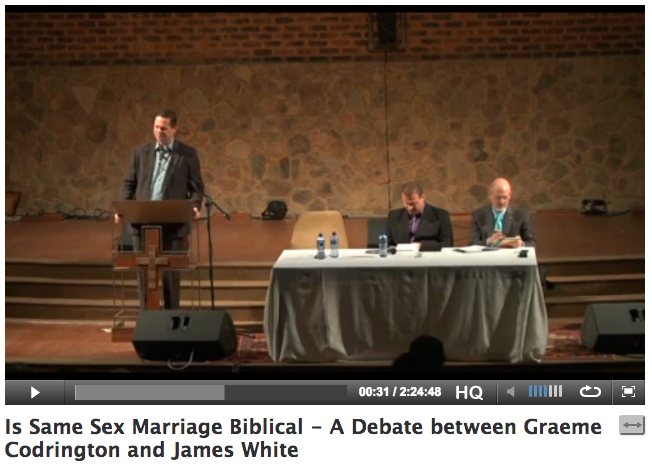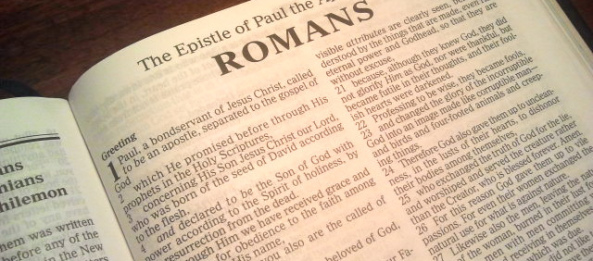Summary
In Romans 1:18-32, Paul refers to men and women going “against nature” and committing “shameful acts”.
In Jewish thought, “unnatural sex” was any sexual activity that could not result in insemination. The Old Testament references Paul could have been referring to were about having sex with a woman during her menstrual period, but could also have referred to oral or anal sex, or to masturbation. Lesbian sex would also have been “unnatural”. Paul considers all of these to be cultural issues (for the Jewish readers of his letter), and are not moral judgements.
To add to this interpretation, Paul uses a word for “sexual activity” that specifically references the function or purpose of sex. And when he talks of same gender sex he uses the word “shameful” rather than “evil” or “wicked”.
For Paul, the “shameful acts” and “against nature” sexual activities were Jewish social conventions and not moral categories. In other words, Paul was saying that same-gender sexual activity of the Gentiles was something that Jews did not like. He was not saying that these activities are morally wrong.
Paul’s concern with male homosexual activity has to do with excess, licentiousness and being “filled with lust”. These, too, are culturally unacceptable and in some circumstances may cross the line to sinful activities too. But this does not apply to loving, homosexual couples who are not out of control in their sexual activity.
The point of Romans 1, and the whole letter to the Romans, was to tell Jews to stop judging Gentiles on the basis of these personal preferences; and likewise to tell Gentiles to stop judging Jews on similar cultural grounds.
Paul is not invoking a so-called “creation ordinance” in these verses.
These verses do not condemn same-gender sexual activity, let alone lifelong, monogamous, covenantal same-gender relationships.
|
NOTE: This section was significantly updated on 20 October 2015
In the previous section of this series, we showed that the letter to the Romans only makes sense as Paul’s treatise to Jewish and Gentile Christians to accept each other as brothers and sisters in Christ, and not to let their various cultural practices get in the way of this. Paul shows the Jews that although they are God’s chosen people and believe that they have a special status in eternity, actually they have failed God just like everyone else. Paul’s intent in Romans 1 is to set the Jewish believers up a bit, by caricaturing Gentile sinners, and sucker punching Jewish readers in Romans 2.
But this does not deal with the fact that Paul lists a lot of sins in Romans 1, and clearly indicates that these actions are evil. That Jews and Gentiles have both sinned does not reduce the impact of the list of sins in Romans 1. But does Paul really say that homosexuality is sinful? He says it is shameful. He says it is against nature. But is this the same as being sinful? And what exactly are the sins (and shameful things that are against nature) that Paul is concerned about?
The main traditional argument against homosexuality misreads Romans 1. It sees it as Paul’s condemnation of the Gentiles on the basis of their rejection of God and especially what is often called “creation order”. The traditional view is based on the view that God created man and woman, making them suitable for each other and that this is the only form of marriage allowed in Scripture. It argues that Jesus Himself (in Matthew 19 and Mark 10) appears to affirm that issues related to marriage hinge on how God created humanity (although Jesus was actually answering a specific question about divorce – we’ll deal specifically with Jesus’ comments later in this series). Therefore, the traditional argument says, the sin of homosexuality is the giving up of natural desires and engaging in unnatural acts, which are defined as any same gender sexual activity.
But this is not what Paul actually says. As we have to do with all Biblical passages, we need to look more closely at the words and phrases used and see if they’re as clear in the original language and context as we imagine them to be in our own. When we do this, we find immediately that they are not. “Shameful” or “degrading” practices are clearly linked to cultural preferences. And going “against nature” does not mean something that is inherently evil, but rather something that is against accepted practice. When read in the light of this understanding, we see a clear progression in Paul’s description of a descent into moral decay, from idolatry to culturally unacceptable behaviour to sinful actions to moral decay to the complete destruction of humanity (we’ll come back to this in the next section in more detail). Homosexuality falls into the culturally unacceptable category, and is not considered sinful and evil.
But let me not get ahead of myself here. Have a look for yourself.
Continue reading The Bible and Same Sex Relationships, Part 11: Shameful Acts and Going Against Nature →









